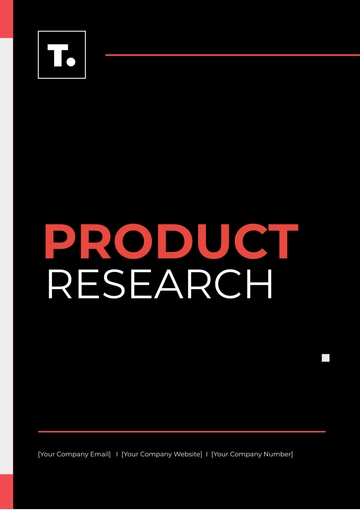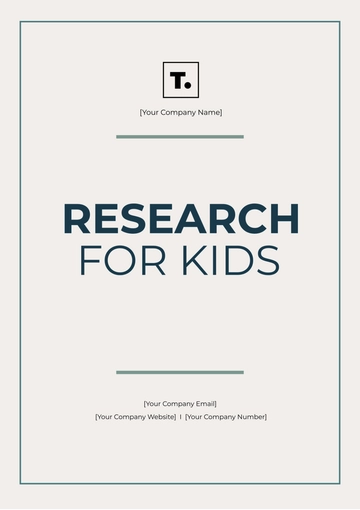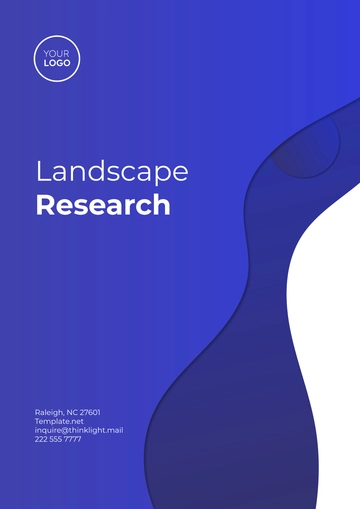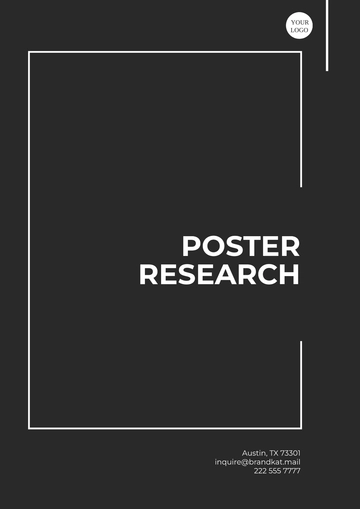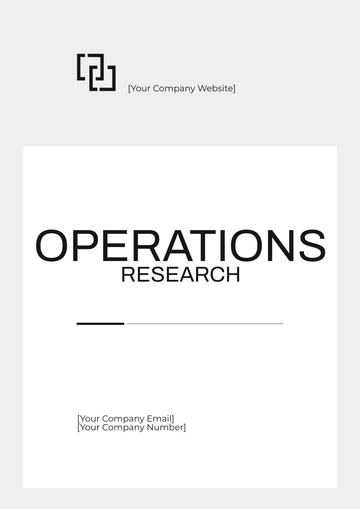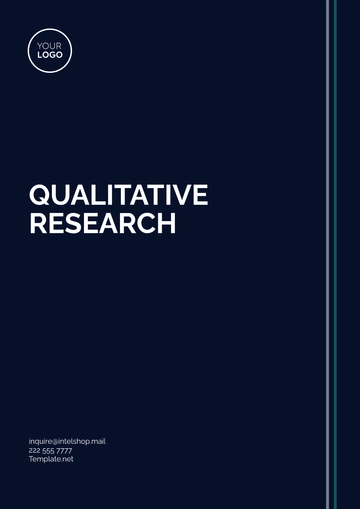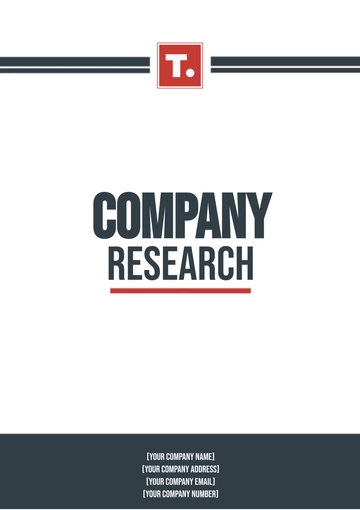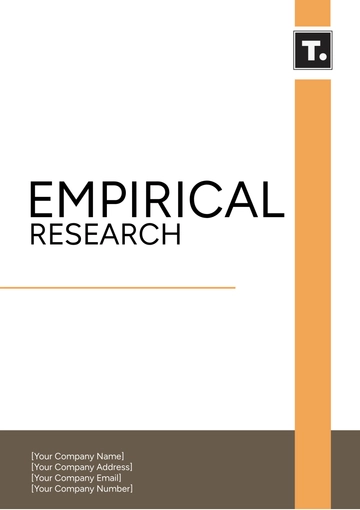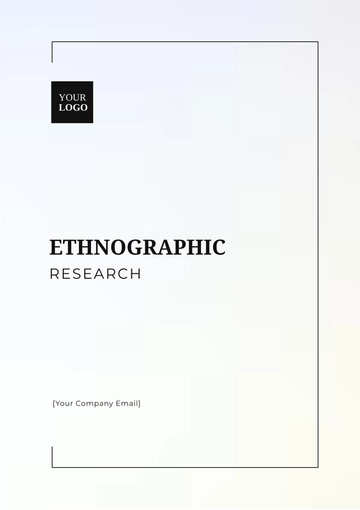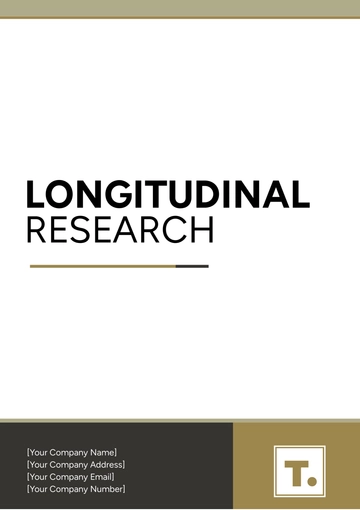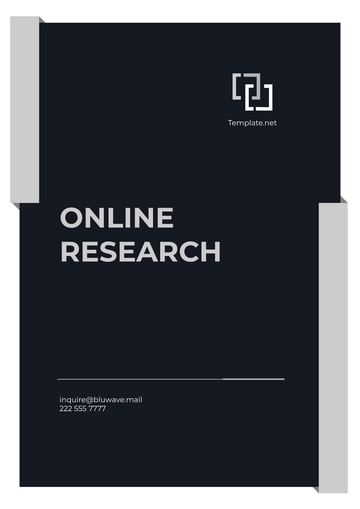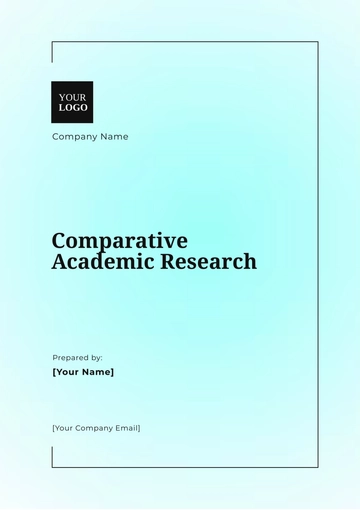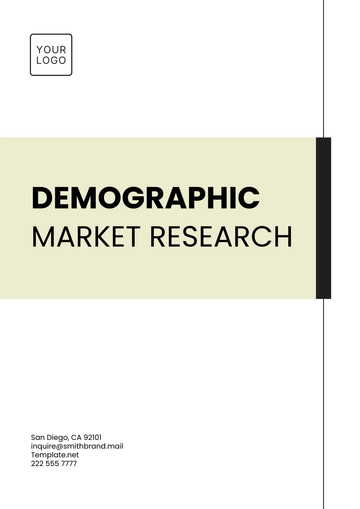Free Multi-Site Ethnography
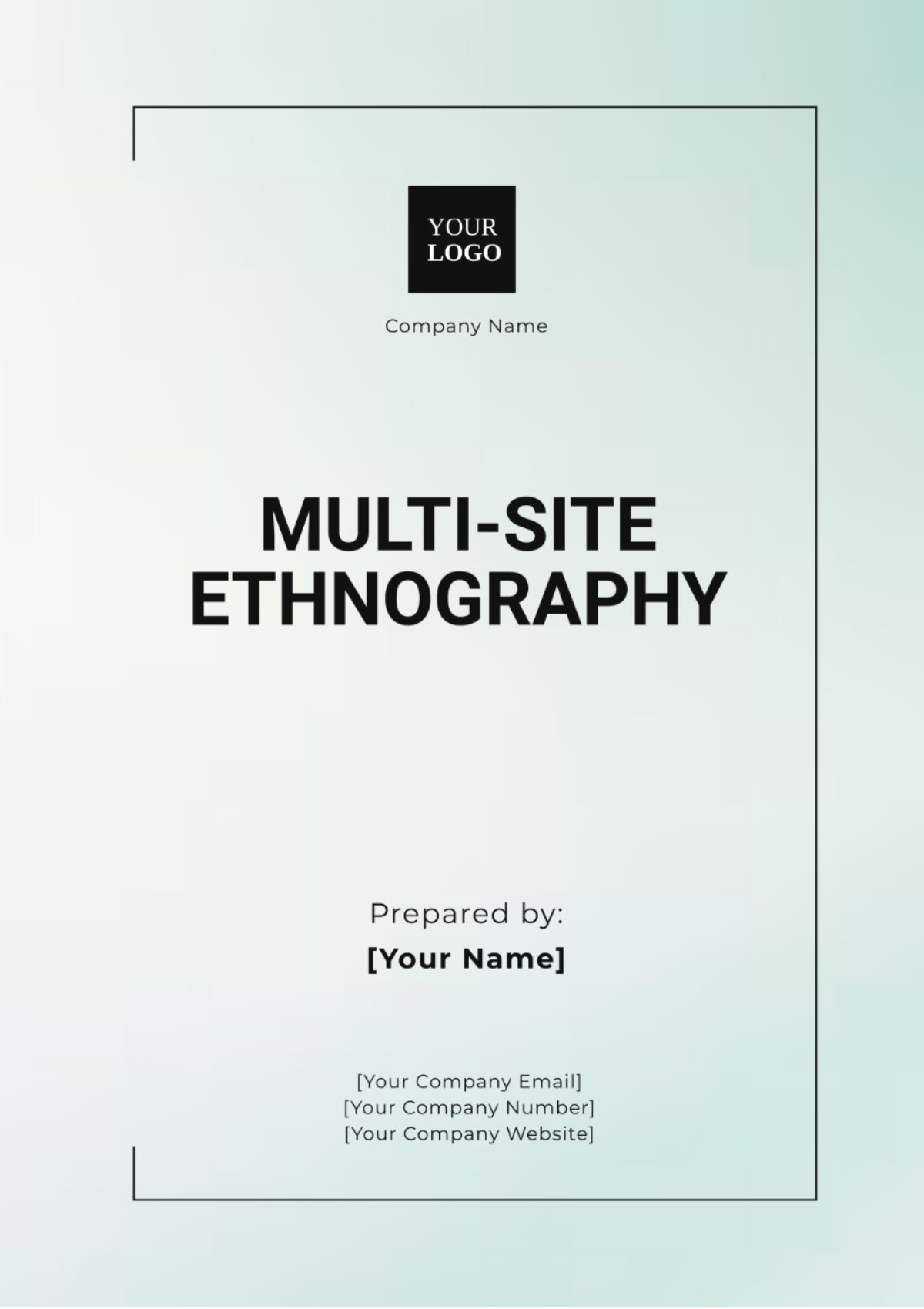
Prepared By: [YOUR NAME]
Date: [DATE]
I. Introduction
This Multi-Site Ethnography explores remote work practices in technology companies across three distinct locations: Silicon Valley (USA), Bangalore (India), and Berlin (Germany). The study aims to understand how remote work is implemented and experienced differently across these settings and to identify common challenges and best practices.
II. Methodology
A. Research Design
The research utilized a qualitative methodology characterized by the implementation of ethnographic techniques. To gather comprehensive data, the study relied on several methods, including participant observation, conducting in-depth interviews, and administering surveys.
B. Data Collection Methods
Participant Observation: Researchers spent three months observing remote work practices at company offices and employees' home offices in each location.
Interviews: I conducted semi-structured interviews with 15 employees and 5 managers at each site, ensuring a diverse range of viewpoints.
Surveys: Distributed online surveys to a more extensive and varied sample of remote workers in each specific geographical area.
C. Sites
Location | Description |
|---|---|
Silicon Valley, USA | A major tech hub is known for its innovation and high-tech culture. |
Bangalore, India | A prominent IT and tech center with a growing remote work sector. |
Berlin, Germany | A European tech scene with a diverse approach to remote work. |
III. Site Descriptions
A. Silicon Valley
Environment: Highly collaborative with a focus on innovation. Remote work is often flexible and supported by advanced technology.
Practices: Emphasis on regular virtual meetings and real-time collaboration tools. High investment in employee wellness and work-life balance.
B. Bangalore
Environment: Fast-growing tech sector with a mix of traditional and modern work practices. Remote work is becoming more common but varies significantly across companies.
Practices: Remote work is often seen as a benefit for employees in higher positions. Use of mobile technology and asynchronous communication is prevalent.
C. Berlin
Environment: Known for its creative and open work culture. Remote work is widely accepted and integrated into company policies.
Practices: Strong emphasis on autonomy and work-life balance. Frequent use of collaborative tools and flexible working hours.
IV. Findings/Results
A. Silicon Valley, USA
Aspect | Details |
|---|---|
Common Challenges | Communication: Managed with advanced technology. |
Employee Engagement: Innovative solutions and wellness. | |
Best Practices | Technology: Advanced tools for efficiency. |
Flexibility: High flexibility in hours and locations. |
B. Bangalore, India
Aspect | Details |
|---|---|
Common Challenges | Communication: More pronounced issues with less tech. |
Employee Engagement: Less innovative compared to others. | |
Best Practices | Technology: Mobile tech and asynchronous communication. |
Flexibility: Limited to higher positions. |
C. Berlin, Germany
Aspect | Details |
|---|---|
Common Challenges | Communication: Addressed with flexible schedules. |
Employee Engagement: Strong focus on autonomy. | |
Best Practices | Technology: Collaborative tools and flexibility. |
Flexibility: Notable flexibility and high satisfaction. |
V. Discussion
The Multi-Site Ethnography highlights distinct patterns and challenges in remote work across Silicon Valley, Bangalore, and Berlin, each reflecting unique local contexts and organizational practices.
A. Communication
Silicon Valley leverages advanced technology to efficiently manage time zone differences and coordination issues. Robust digital tools enable effective real-time collaboration.
Bangalore encounters more significant communication challenges due to less advanced technology, impacting coordination and team cohesion.
Berlin addresses communication issues with flexible scheduling, accommodating different time zones, and improving remote coordination.
B. Employee Engagement
Silicon Valley leads with innovative solutions and substantial investment in employee wellness, boosting job satisfaction and productivity.
Bangalore lacks the advanced engagement strategies seen in Silicon Valley and Berlin, potentially affecting employee satisfaction.
Berlin focuses on autonomy, which effectively maintains engagement and supports a positive work environment.
C. Best Practices
Silicon Valley benefits from advanced collaboration tools and high flexibility in work hours and locations, fostering a dynamic work environment.
Bangalore uses mobile technology and asynchronous communication but offers flexibility mainly to higher positions, which may limit overall inclusivity.
Berlin combines effective collaborative tools with notable flexibility in hours and locations, enhancing remote work efficiency and employee satisfaction.
Each location's remote work strategies reflect its technological capabilities, organizational culture, and employee needs. Tailoring these strategies to local contexts is crucial for optimizing effectiveness and satisfaction.
VI. Conclusion
The Multi-Site Ethnography reveals that remote work practices differ across Silicon Valley, Bangalore, and Berlin due to varying technological resources, organizational cultures, and employee needs. Silicon Valley's advanced technology and flexibility boost efficiency and engagement. Bangalore struggles with less advanced technology and limited flexibility, affecting satisfaction. Berlin's balanced approach with flexibility and effective tools leads to high satisfaction. These findings emphasize the importance of tailoring remote work strategies to local contexts to enhance performance and employee well-being.
VII. References
Smith, J. (2053). Remote Work in Tech Companies: A Global Perspective. Tech Press.
Kumar, A. (2054). Work Culture and Remote Work in India. Indian Journal of Management Studies.
Müller, S. (2053). Flexible Work Environments in Europe. European Business Review.
- 100% Customizable, free editor
- Access 1 Million+ Templates, photo’s & graphics
- Download or share as a template
- Click and replace photos, graphics, text, backgrounds
- Resize, crop, AI write & more
- Access advanced editor
Streamline your multi-location research with Template.net’s Multi-Site Ethnography Template. This editable and customizable template is ideal for managing ethnographic studies across various sites and fully editable in our Ai Editor Tool, it enables you to efficiently organize and compare data from different locations and ensure comprehensive cross-site analysis and reporting.


